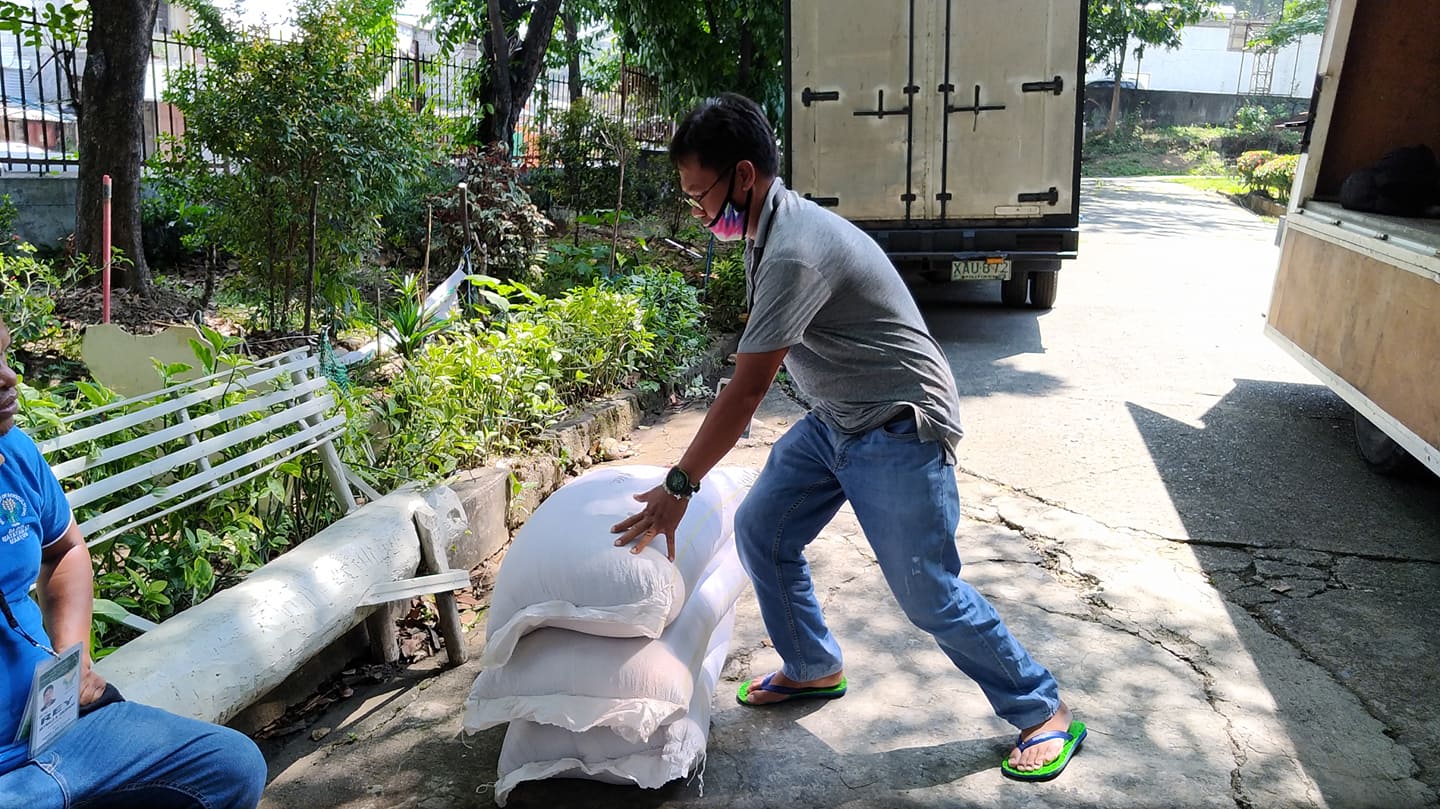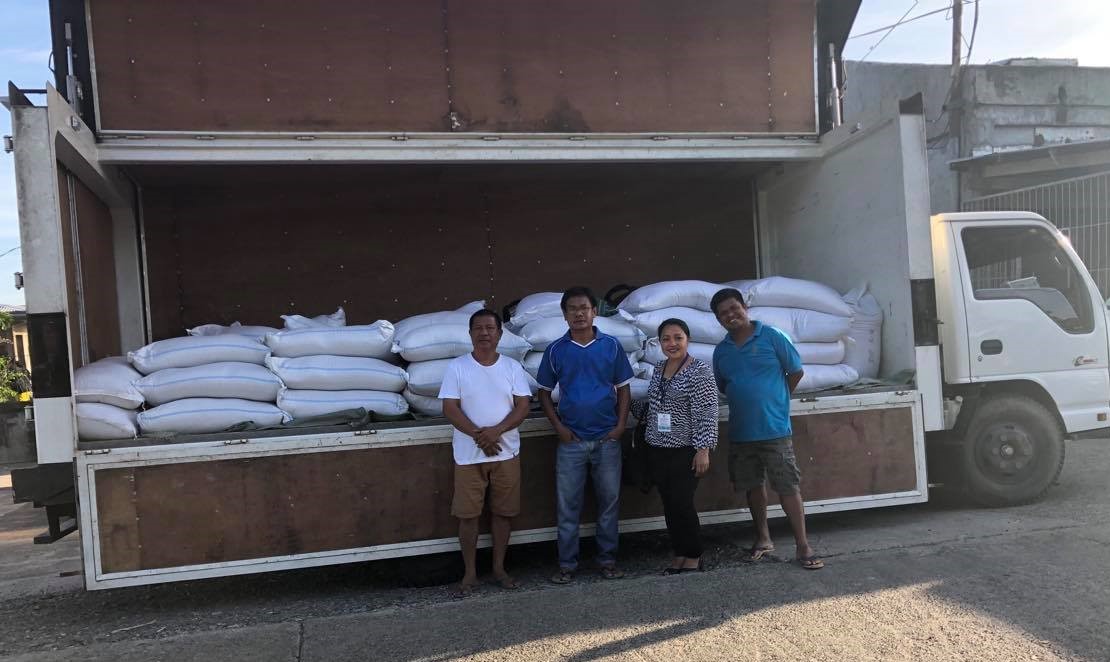Coop-to-coop trading continues
12-06-2020PHILIPPINES -- Farmers in Sanchez Mira, Cagayan have been experiencing difficulties selling their organic rice produce since the onset of the COVID-19 restrictions in the country while households in Taytay Rizal were having problems getting their supply of rice. Through the Coops4Food they were able to find a solution. The Sambaland Agrarian Reform Beneficiaries Cooperative (SARBC) from Cagayan, recently delivered 500 kilograms of organic red rice or pigmented rice to Gintong Aral Pangkabuhayan Consumers Cooperative (GACC) in Taytay, Rizal.
This is a new trading experience for both cooperatives. “Small-holder farmers hesitate to produce pigmented rice due to local marketing challenges, post-harvest processing costs, transportation costs to NCR, and lengthy payment terms with institutional buyers are too high a risk for most,” according to Atty Rondine Macadaeg, SARBC focal person.
SARBC learned from this trading experience that there are other markets for red rice. It is also the first time that GACC is selling red rice to their members and other consumers. They realized that red rice has buyers especially for those seeking to shift to healthier diets. From the initial transaction of 500 kgs, they are now planning to selling more up to 2,000 kgs. With the competitive price given by SARBC, they can sell cheaper to their consumers by about P10-P20 per kg. compared to commercially sold red rice.

The Coops4Food is one the initiatives of USAID GROW Coop project of Agriterra in response to the Covid 19 pandemic that badly affected the access of farmers and communities to markets and food supply. Recognizing the potential of cooperatives to help address the problem GROW Coop started the coop to coop trade which soon enough facilitated the trade of vegetables from coops in Baguio to coops in Batangas and now rice from Cagayan to coop members in Rizal.
As the level of activities increased, GROW Coop tapped AgriCOOPh to take the lead to expand the coop-to-coop trading under the Coops4Food initiative. “The business of buying and selling between cooperatives provides better member benefits and gives more meaning to the social purpose why cooperatives were established for the producers and consumers. The profit margin that normally goes to the middleman, or multi-middlemen in the supply chain, will now be shared to the owners of both cooperatives in the trading transactions. These benefits are in the form of dividends and patronage refund,” Mr. Cresente Paez said, CEO of AgriCOOPh.
The Philippine Family Farmers’ Agriculture Fisheries Forestry Cooperatives Federation (AgriCOOPh) is a national federation of agricultural cooperatives in the country whose membership is a mix of large and small agri-coops with a large base of small-scale family farmers. Mr. Paez, sees anchoring of the coops to coop trade makes AgriCOOPh relevant to its member-cooperatives in this times of emergency. He also shared that this is a long time aspiration of the federation.

AgriCOOPh is one the key partners of Agriterra in the USAID Generating Rural Opportunities by Working with Cooperatives (GROW-Coop) project. Under this initiative, large cooperatives are tapped to become Local Resource Organizations (LROs) that serve as big brothers to smaller coops. Agriterra works with the LROs to increase and improve their capacity to deliver advise in the areas of financial management, governance and business management and development for the small cooperatives that will become part of their value chain.
To know more about the GROW-Coop, please send your inquiries to
ramirez@agriterra.org and virola@agriterra.org
